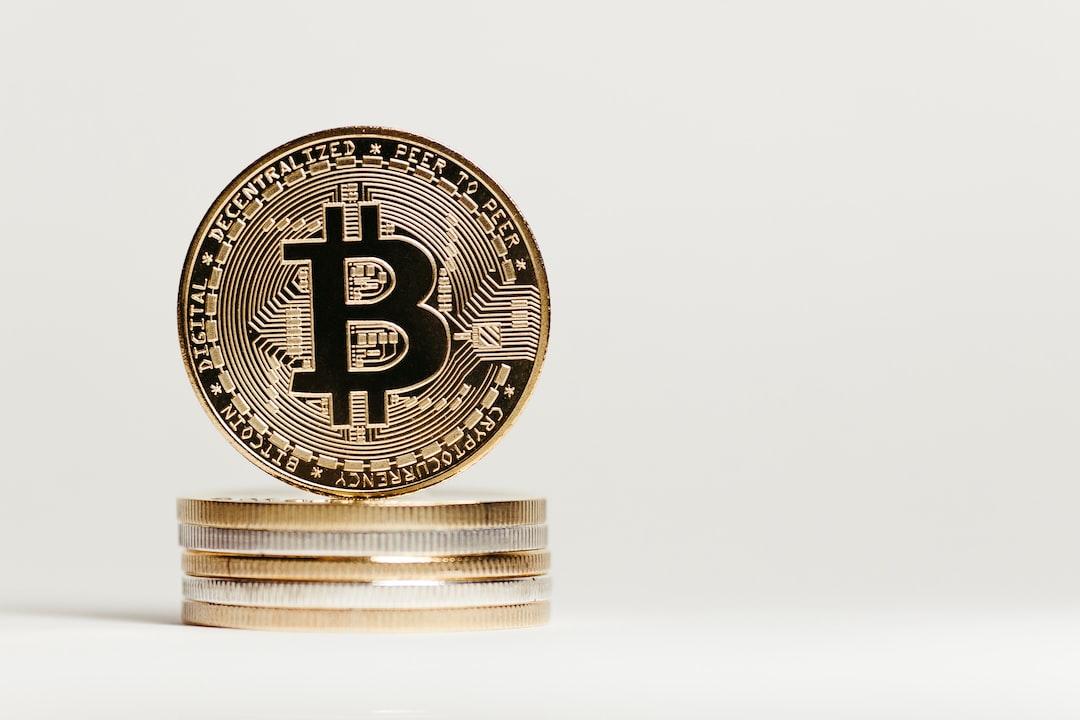Blockchain technology has evolved rapidly, with Ethereum at the forefront of decentralized applications (dApps) and decentralized finance (DeFi). However, Ethereum and other blockchains have faced significant challenges in scaling to accommodate the growing demand for high transaction throughput and low latency. Ethereum’s Proof-of-Work (PoW) model, although secure, has limitations in transaction processing speed and scalability. As decentralized networks become more complex and require greater throughput, solutions such asZero-Knowledge Rollups (ZK-Rollups)have emerged as a game-changer.
Zero-Knowledge Rollups are a type ofLayer 2 scaling solutiondesigned to offload computations and data storage from the main Ethereum network (Layer 1) to a secondary network (Layer 2). ZK-Rollups promise to improve scalability, lower transaction costs, and enhance user privacy while still maintaining the robust security of Ethereum. This article delves into the intricacies of Zero-Knowledge Rollups, how they work, their potential to revolutionize Ethereum and other blockchain ecosystems, and their key advantages and challenges.
Key Highlights
Zero-Knowledge Rollups (ZK-Rollups)are Layer 2 solutions that process transactions off-chain while keeping data security and privacy intact.
ZK-Rollups utilizezero-knowledge proofs(ZKPs) to validate transactions without revealing sensitive information, enhancing privacy and scalability.
The primary objective of ZK-Rollups is to alleviate Ethereum’s congestion issues, reducing gas fees, and increasing transaction speed.
Ethereum’s transition toProof-of-Stake(PoS) and the rise of Ethereum 2.0 further enhances the efficiency of ZK-Rollups.
ZK-Rollups offer a promising solution forprivacy preservation, ensuring data confidentiality without compromising on transaction integrity.
Understanding Zero-Knowledge Rollups
To comprehend how Zero-Knowledge Rollups function, we must first understand their underlying components. A rollup is aLayer 2 scaling solutionthat allows for the execution of smart contracts and transactions off-chain, with only the necessary information submitted to the main Ethereum chain.ZK-Rollupsemployzero-knowledge proofs (ZKPs)to prove the correctness of off-chain transactions without revealing the underlying data.
Zero-Knowledge Proofs: The Foundation of ZK-Rollups
AZero-Knowledge Proof (ZKP)is a cryptographic method that allows one party (the prover) to convince another party (the verifier) that a statement is true, without revealing any specific information about the statement itself. In the context of ZK-Rollups, ZKPs allow a user to demonstrate that a transaction or computation is valid without exposing the underlying transaction details or private data.
For example, when a user initiates a transaction on a blockchain using ZK-Rollups, the computation of that transaction happens off-chain. Once the computation is complete, the resulting ZKP is submitted to the Ethereum mainnet for validation. The Ethereum network does not need to process all the transaction details but only verifies the validity of the ZKP. This reduces the computational load on the Ethereum network and increases transaction throughput.
There are two main types of zero-knowledge proofs used in ZK-Rollups:
SNARKs (Succinct Non-Interactive Arguments of Knowledge): SNARKs are compact proofs that enable quick and efficient verification of transactions. These proofs are non-interactive, meaning that the prover and verifier do not need to communicate multiple times.
STARKs (Scalable Transparent Arguments of Knowledge): STARKs offer scalability by producing larger proofs but are more transparent than SNARKs. STARKs do not require trusted setup and are based on more robust cryptographic assumptions.
Both types of ZKPs provide significant scalability improvements but have different trade-offs in terms of efficiency, transparency, and the level of trust required.
How ZK-Rollups Enhance Blockchain Ecosystems
Off-Chain Computation and Storage
One of the key advantages of ZK-Rollups is their ability to offload computation and storage from the main Ethereum network. In traditional Ethereum transactions, every interaction or transaction must be processed by the Ethereum Virtual Machine (EVM), which is resource-intensive and contributes to network congestion. With ZK-Rollups, most of the computation occurs off-chain, with only essential data (like transaction summaries or ZKPs) posted to the Ethereum mainnet.
By processing the bulk of the transaction data off-chain, ZK-Rollups allow for anincrease in transaction throughput, enablinghigher scalabilityand faster processing times. As a result, Ethereum can handle more dApp users andDeFi protocolswithout significant increases in transaction fees or delays.
Cost Reduction and Gas Efficiency
Transaction costs, orgas fees, on Ethereum have been a major barrier to entry for many users. Gas fees tend to rise during periods of network congestion, pricing out smaller users and making Ethereum less attractive for mass adoption. ZK-Rollups directly address this issue by bundling multiple transactions into a single transaction that is recorded on Ethereum. Thisreduces the amount of gasrequired per individual transaction, ultimately lowering costs for users and allowing for more efficient gas usage.
By handling computations off-chain and submitting only essential data to the Ethereum mainnet, ZK-Rollups significantly lower the cost of using the Ethereum network, thereby enabling decentralized applications and protocols to scale without introducing prohibitive costs.
Maintaining Security and Decentralization
While scaling and reducing transaction costs are critical goals for blockchain ecosystems, maintainingsecurityanddecentralizationis just as important. ZK-Rollups preserve thesecurity guaranteesof Ethereum by leveraging its consensus mechanism. Transactions processed off-chain are still validated by Ethereum’s network using zero-knowledge proofs, ensuring that only valid and secure transactions are committed to the blockchain.
Ethereum’sProof-of-Stake(PoS) upgrade further strengthens the security of ZK-Rollups by reducing the risk of attacks associated with Proof-of-Work (PoW), such as the possibility of51% attacks. The transition to PoS makes Ethereum more energy-efficient and offers enhanced scalability, allowing ZK-Rollups to operate more effectively.
Moreover, thedecentralizationof Ethereum is maintained because the Ethereum mainnet still serves as the final authority for transaction validation. Even though computations happen off-chain, the validation process remains trustless and decentralized, ensuring that no single party can manipulate or control the data.
Key Benefits of ZK-Rollups
Scalability: ZK-Rollups allow Ethereum and other blockchains to handle more transactions per second (TPS) by offloading computational tasks to secondary layers. This reduces the burden on the main network and improves overall transaction throughput, enabling blockchain ecosystems to scale as adoption increases.
Privacy: One of the key advantages of ZK-Rollups is their ability to offer enhancedprivacy. Zero-knowledge proofs ensure that the details of transactions can remain confidential while still allowing the blockchain to verify their correctness. This is particularly useful in sectors likeDeFiandsupply chain management, where transaction privacy can be critical.
Lower Gas Fees: As ZK-Rollups batch multiple transactions into a single one, gas fees are significantly reduced. Users can execute transactions at a fraction of the cost compared to traditional Ethereum transactions, which can become expensive during periods of high congestion.
Interoperability: ZK-Rollups can be used across multiple blockchain ecosystems, not just Ethereum. As more blockchains adopt ZKPs for scaling, the ability to use ZK-Rollups across different networks could foster greaterinteroperabilitybetween different blockchain ecosystems, allowing assets and data to move seamlessly between chains.
Challenges and Limitations
Despite their many advantages, ZK-Rollups face several challenges and limitations:
Complexity of Implementation: Implementing ZK-Rollups requires a deep understanding of cryptographic principles, particularlyzero-knowledge proofs. This can make the development of ZK-Rollup-based applications more complex and time-consuming compared to other scaling solutions, such as Optimistic Rollups.
Computational Overhead: While ZKPs reduce the amount of data required on-chain, generating and verifying these proofs can still be computationally expensive. This can limit the scalability of ZK-Rollups, particularly when it comes to large-scale, high-frequency transactions.
Ecosystem Maturity: ZK-Rollups are still in their early stages, and the ecosystem surrounding them is not as mature as that of other Layer 2 solutions. As ZK-Rollups continue to evolve, developers must overcome challenges related to network effects, user adoption, and platform interoperability.
The Road Ahead for ZK-Rollups
As Ethereum continues its transition toEthereum 2.0and other blockchain ecosystems explore the benefits of ZK-Rollups, the technology is poised for wider adoption. The growing interest indecentralized finance (DeFi),NFTs, andgamingapplications, all of which require scalability and privacy, is driving innovation in the development of ZK-Rollups.
In the coming years, we can expect several developments in the ZK-Rollup space:
Enhanced Efficiency: Ongoing research into ZKPs will likely lead to moreefficientandscalableimplementations, improving the speed and reducing the computational overhead of rollups.
Integration with Layer 2: ZK-Rollups are expected to be integrated with other Layer 2 solutions, includingOptimistic Rollupsandsidechains, to create more versatile and scalable blockchain ecosystems.
Wider Adoption: As ZK-Rollups mature, their adoption will likely grow, not only on Ethereum but across other blockchain ecosystems. Their ability to offer scalability, privacy, and security will make them a critical part of the blockchain infrastructure.
Also, read –Top 10 Amazing Ways ZK-Rollups Are Simplifying Account Abstraction In 2024
Conclusion
Zero-Knowledge Rollupsrepresent one of the most promising solutions for addressing Ethereum’s scalability issues while maintaining security and privacy. By offloading computations and data storage to secondary layers and leveraging zero-knowledge proofs for validation, ZK-Rollups enable blockchain networks to process more transactions with lower fees and enhanced privacy. While challenges remain, ZK-Rollups have the potential to transform Ethereum and other blockchain ecosystems, making them more efficient, scalable, and secure.
As the technology matures and integration with other blockchain networks becomes more widespread, ZK-Rollups will likely play a central role in the future of decentralized finance and blockchain applications, shaping the landscape of blockchain technology for years to come.



